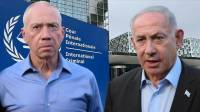

Iran says Hamas leader Ismail Haniyeh martyred with short-range projectile fired from outside his guesthouse in Tehran. Warns Hezbollah will strike civilian targets deeper in Israel.
GAZA/TEL AVIV - Iran said Saturday it expects Lebanon’s Tehran-backed Hezbollah group to strike deeper inside Israel and no longer be confined to military targets after Israel killed Hezbollah military commander Fuad Shukr.
The warning comes amid increased fears of a major escalation in the area and continued cross-border fire between Israel and Hezbollah, which started attacking Israel the day after the October 7 Hamas-launched onslaught on Israel from Gaza.
But a strike claimed by Israel in a crowded residential area of South Beirut changed the Lebanese group’s calculus, Iran’s mission to the United Nations said.
A spokesperson for Iran’s Permanent Mission to the United Nations told CBS that until now, Hezbollah has limited itself according to an “unwritten understanding” with Israel “confining their actions to border areas and shallow zones, targeting primarily military objectives.”
“However, the [Israeli] regime’s attack on the Dahieh [neighborhood] in Beirut and the targeting of a residential building marked a deviation from these boundaries. We anticipate that, in its response, Hezbollah will choose both broader and deeper targets, and will not restrict itself solely to military targets and means,” the spokesperson said.
Also, the US will deploy additional warships and fighter jets to the Middle East to help defend Israel from possible attacks by Iran and its proxies, the Pentagon said. Tensions remain high in the region over the assassination of Hamas leader Ismail Haniyeh in Iran and a key commander of the Lebanese militant group Hezbollah. Missile defence forces were placed on a state of increased readiness to deploy, the Pentagon said, adding that its commitment to defend Israel was “ironclad”.
Iran’s leader Ayatollah Khamenei has vowed “harsh punishment” against Israel for the assassination of Haniyeh. The Hamas leader was killed in Tehran on Wednesday. Iran and its proxy in Gaza blamed the attack on Israel, which has not commented.
Haniyeh, 62, was widely considered Hamas’s overall leader and played a key role in negotiations aimed at reaching a ceasefire in the Gaza war. His death came just hours after Israel claimed it killed Fuad Shukr, the top military commander of Iran’s proxy in Lebanon, Hezbollah.
A Pentagon statement said the new deployments would “improve US force protection... increase support for the defence of Israel, and ... ensure the US is prepared to respond to various contingencies”.
The deployments would include additional ballistic missile defense-capable cruisers and destroyers, it said.
Meanwhile, Iran has claimed that the assassination of Hamas political leader Ismail Haniyeh in Tehran earlier this week was carried out by a “short-range projectile” and a “severe explosion” outside a guest house where he was staying.
A source familiar with the matter said that Haniyeh was killed by an explosive device that had been covertly hidden inside the guest house. The death of the Hamas leader further heightened tensions at an already volatile time, raising fears that Israel’s conflict with Hamas and its allies could develop into a multi-front, fully-fledged war in the Middle East. The Iranian government and Hamas say that Israel carried out the assassination. Israel has neither confirmed nor denied its involvement.
On Saturday, Iran warned that “blood vengeance” for the killing was “certain.”
The Islamic Revolutionary Guard Corps (IRGC) claimed in a statement that the short-range projectile that reportedly killed Haniyeh had a warhead of about seven kilograms, based on “investigations and research conducted.”
CNN’s source, who had been briefed on the operation, said that a bomb was concealed about two months ago in the guest house where Haniyeh was known to stay in Tehran, and detonated remotely once he was inside his room there.
US officials were briefed on the operation by Israeli officials only after the assassination, the source said.
“This action was planned and executed by the Zionist regime with the support of the criminal American government,” the IRGC alleged. Iran calls Israel the Zionist regime.
Israel “will decisively receive the response to this crime,” which is a “severe punishment” that will come at “an appropriate time, place, and manner,” the IRGC said.
The chief spokesperson for the Israel Defense Forces (IDF), Rear Admiral Daniel Hagari, said Thursday that Israel is on “high alert” for both defensive and offensive military action.
“IDF forces are deployed in the air, at sea and on the ground, and are prepared for all scenarios, especially for offensive plans within the immediate timeframe,” Hagari said.
Gaza’s civil defence agency said an Israeli strike struck a school compound in Gaza City on Saturday, killing at least 10 people.
“There are 10 martyrs and several wounded due to Israeli bombardment on Hamama school,” agency spokesman Mahmud Bassal told AFP. The Israeli military confirmed the strike, saying it had hit a Hamas command and control centre located inside the compound.
Bassal said the compound was housing Palestinians displaced from their homes in the ongoing war.
The Israeli military has repeatedly accused Hamas of using civilian facilities as command and control centres or to hide their commanders and militants. The Palestinian group denies the accusation.
The war in Gaza erupted after Hamas attacked Israel on October 7, which resulted in the death of 1,197 people, mostly civilians, according to an AFP tally based on official Israeli figures.
Militants also seized 251 people, 111 of whom are still held hostage in Gaza, including 39 the military says are dead.
Israel’s withering military campaign has killed at least 39,550 people, according to the Hamas-run territory’s health ministry.












